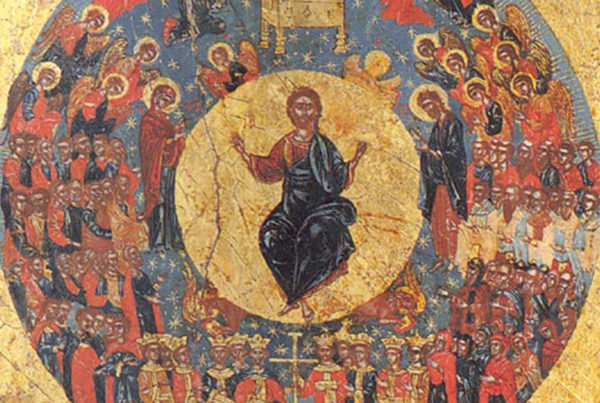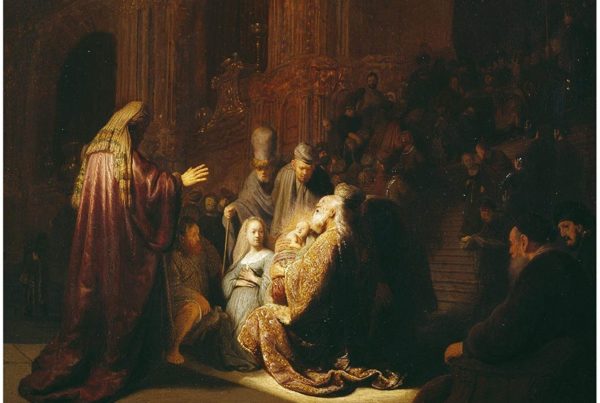There is a story told in the Sayings of the Desert Fathers. A group of old men came to see Abba Anthony, in the midst of whom was a man named Abba Joseph. Abba Anthony wanted to test them, so he suggested a text of Scripture and asked each one what they thought it meant. Each gave their answer. And to each Abba Anthony said “You have not understood it.” When the time came for Abba Joseph to answer, Joseph replied, “I do not know.” Abba Anthony looked at the group and said, “Indeed, Abba Joseph has found the way, for he said, ‘I do not know’.”
Growth in grace, I am convinced, is a growth in humility. In being able to say “I do not know”, and then trusting the Spirit to move in the space created by “I do not know.” In such space we move from fixing people to following the Jesus who alone is capable of fixing people.
Some years ago a lovely family began attending our little church. Hardworking. Devoted. Full of faith and great love.
These folks in particular had a great love for people on the margins. The homeless had a special place in their hearts. At one point they had actually taken a homeless man into their lives, letting him live in a restored VW van they kept right next to their house, eventually helping him find treatment for a history of alcohol abuse and mental illness. Amazing people. Compassionate. Full of mercy and good fruit.
One day, Steve, the father, asked me if we could meet. “Something terrible has happened, and I need to talk to you about it.” We agreed to meet at IHOP the next day.
Over pancakes Steve explained to me what that “something terrible” was. He had been on a job several hours north of the city, and while stopped at a busy intersection, he rolled down his window and offered some food to a couple of panhandlers on the side of the road. One, who moved considerably worse than the other, stumbled and fell into traffic, where he was killed by a semi-truck. Steve could not believe what he saw. He stayed for the next several hours as first responders came to handle the situation. Stayed to help the police with their report. Stayed even to watch the firefighters wash the blood of the homeless man off of the road where the tragedy had occurred.
The incongruence of this unspeakable tragedy and how quickly life “returned to normal” at this intersection combined with a vague feeling of personal responsibility ate at Steve. Through tears he said to me, “Andrew, I can’t figure out what the point of all of this was. I can’t find my way around it to any meaning that makes it better. Is God really in control? Then why did he let this happen? And what was the purpose of this man’s life? He lived a hard life and died a meaningless death. And how could an act of Christian compassion result in something so senseless?” His soul and mind were all a mess.
Every temptation of my pastoral soul was to provide answers for Steve. I think most of us struggle with this temptation. We want to prove we have at least something valuable to offer people. And so–at our worst–we give them pat answers and platitudes. At our best we give them really sound and good theology. And yet, we often find that it falls flat.
That day, the voice of the Spirit whispered to me: “Do not do it. Resist the temptation to give answers. Just stand with him.” So I did. “Steve,” I said, “I do not know why this has happened. And I don’t have answers to your questions that are even remotely capable of satisfying. But I’m with you through this whole thing. Let’s walk together. You’re going to be okay.”
And so we did. Over coffees and lunches and house church gatherings and football at the park with our boys and after sermons and in prayer and in all the warp and woof of life. We walked. At one point we even went together to the very spot where the tragedy had occurred–just Steve, his wife, and me–to read Scripture and pray and perform together a small liturgy mourning what had happened there and also thanking God for this homeless man’s life and commending that life to the Father who made him and loved him still. We reclaimed the place for the kingdom’s congruence.
And slowly, but surely, over many months and even years, Steve began to find his footing again. It wasn’t easy or instant, but it was sure. When we left that church earlier this year, Steve wrote me a little thank you note, which I stumbled upon again not long ago. He wrote:
Andrew, I so appreciate your ministry to me personally. I will never forget the way you entered my personal pain. You looked me in the eye and told me I would be okay. I didn’t believe you at the time, but you were right. That was a lifeline for me. From the bottom of my heart, “Thank you!”
Tears rolled down my cheeks as I read the note. Heavy sobs of gratitude.
The best thing we can give to people, I think, is not answers, but our humility, and committed relationship. Such things create the space for God to move powerfully in people’s lives. We move from fixing them to following the Jesus who fixes them.
Grace to you,
Andrew




